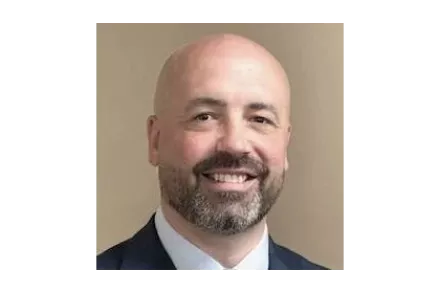
Program Overview
Are you a working professional in K-12 schools, higher education, government or human service organizations? Do you strive to be a catalyst for positive change?
The interdisciplinary Doctorate in Leadership Studies prepares transformative professionals to provide equitable, ethical and socially just leadership in a variety of organizational settings within a diverse society. Ashland University’s program is designed to enhance your leadership capacity. It combines theory and practice with individual mentoring and applied research to train you into a reflective, ethical and effective leader for maximum effectiveness in your chosen career path.

What to Expect
Institutions and organizations around the world need individuals who understand not only how to encourage and lead others, but also how to effectively manage other essential components of leadership – ethical, political and cultural.
In this 59-credit-hour program, you’ll experience high-quality academic content paired with individualized mentoring, both on and off campus. You’ll engage in a rigorous process of research, inquiry and site-specific practice to develop your skills within the context of organizational renewal.
Program Features
Curriculum
View the Academic Catalog or the Ed.D. in Leadership Studies Checksheet for complete degree requirements.
Core courses in the Doctorate in Leadership Studies Program are in the evenings to accommodate working adults. These courses are offered in a variety of formats that are best-suited to the content and subject matter. Currently, core courses are delivered as:
- Classroom: Face-to-face
- Hybrid: Weekly alternating Classroom/Face-to-face with Online (synchronous and/or asynchronous)
- Online: Synchronous, asynchronous or a combination of both
Total Coursework
| Leadership Core | 15 Credits |
|---|---|
| EDLS 9889: Organizational Development | 3 |
| EDLS 9881: Organizational Behavior | 3 |
| EDLS 9860: Institutional Effectiveness | 3 |
| EDLS 9880: Leadership Theory | 3 |
| EDLS 9887: Institutional Policy & Leadership | 3 |
| Cognate Courses | 15 Credits |
| Dissertation | 10 Credits |
| Research Core | 19 Credits |
|---|---|
| EDLS 9819: Becoming a Researcher | 3 |
| EDLS 9820: Quantitative Research Design | 3 |
| EDLS 9821: Qualitative Inquiry | 3 |
| EDLS 9829: Leadership Research | 3 |
| EDLS 9825: Seminar in Leadership Research: Mastering Academic Writing | 1 |
| EDLS 9826: Seminar in Leadership Research: Accessing Research | 1 |
| EDLS 9827: Seminar in Leadership Research: The Literature Review | 1 |
| EDLS 9828: Seminar in Leadership Research: Research Question & Design | 1 |
| EDLS 9823: Dissertation Proposal Development | 3 |
Graduate Outcomes
Knowledge
- Demonstrate knowledge of professional organization structures, policies and procedures, as well as the application of leadership strategies in various organizational cultures.
Leadership
- Demonstrate the ability to formulate, articulate and implement an ethical vision.
- Identify and describe the skills of fellow professionals within an organization and empower them through intrinsic and extrinsic motivators to achieve their full potential.
Organizational Dynamics
- Demonstrate the use and benefits of open communication across an organization.
- Understand the political, economic, social and legal aspects that can affect an organization.
Scholar-Practitioner
- Integrate professional experience with scholarly research to bridge theory with practice.
- Appreciate the benefits of reflective practices and scholarly activities, as well as personal and professional growth experiences.
Action Research
- Effectively apply various quantitative and qualitative techniques to design and implement a study.
- Collect and evaluate data to inform and, when possible, improve upon, the policies, procedures and practices of an organization.
Solidifying Success
Graduates have continued their careers in a variety of areas, including superintendents in school districts of all sizes, college deans, college professors and business executives.


“The doctoral program at Ashland taught me so many things, but the most important was the ability to have a critical eye. Ashland really helped me think differently about my leadership, specifically who I want to be for others.”
- Bruce Willingham, Jr. '14